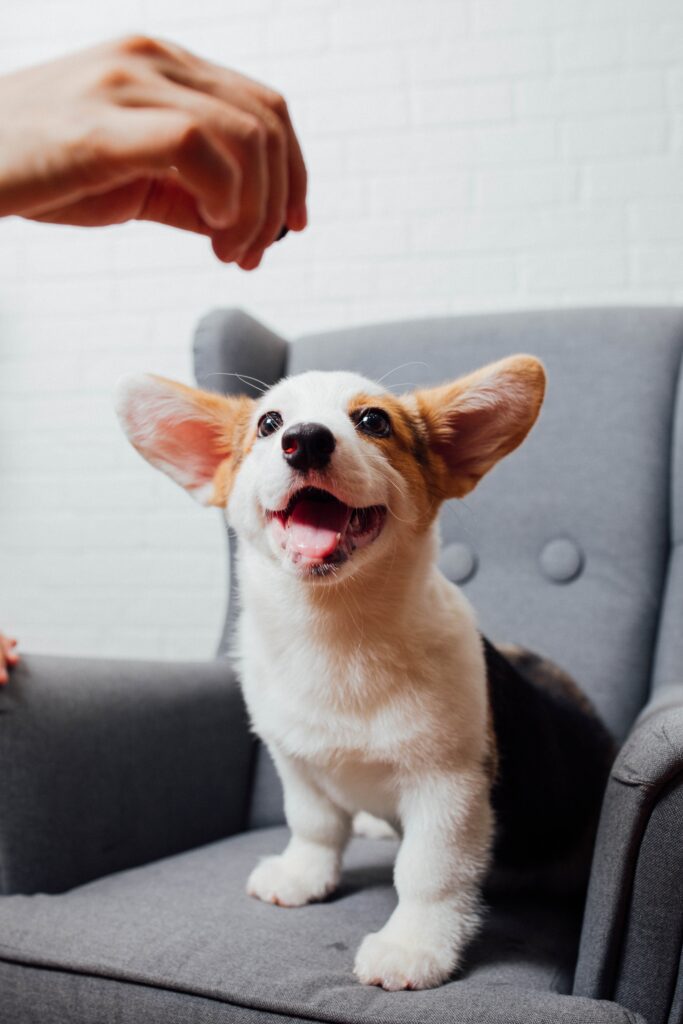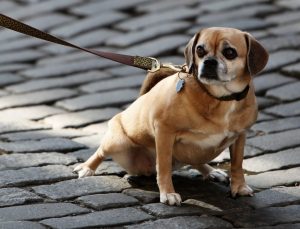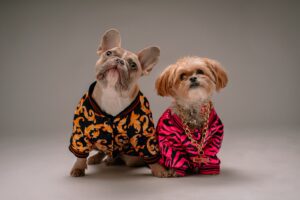Need help with Reactive Dog Behaviour? Join my FREE Facebook support group...
Fun or function? Why dogs ignore some training cues and gladly do others
If you’ve ever wondered why your dog will gladly give you a high five, but struggles with watch me, or recall. Here’s one reason why dogs ignore some training cues, that you might not have considered!
Training for fun
For most of our dogs, sit is the very first thing they learn. Training a puppy is loads of fun and very rewarding. You practise in the house and garden, and your puppy has a great time earning your approval and some treats too. As far as your puppy is concerned, this “training thing” is just one big fun game. So, he has no hesitation in showing off what he can do.
Then we start going for walks, the world becomes a little more distracting. But it is still fun to do tricks, so it doesn’t take much effort to overcome that mini hurdle.

Ongoing training
Once we have mastered the basics, we start looking at more functional training. The emphasis shifts from fun to achievement. We stop teaching things like paw or roll-over and start working on wait, watch, and place. These will have their uses as our dog becomes more and more distracted by the world we live in. We use “place” to request our dog wait on a mat instead of meeting our guests. We use “sit” and “watch” together to stop our dog talking to other dogs, or chasing after cars or bikes.
These new cues are more about stopping an action the dog would prefer, rather than adding an action. When the dog first sat for his dinner, he also got his dinner. When he first rolled-over you had fun together, and he got a treat. Now, more likely, when he sits and looks at you, a dog passes and he missed his chance to say hello.
Cues signal an end of fun
As time goes by, we rely more and more on cues to manage our dogs behaviour, especially when we want them to ignore something. No one ever saw a dog approaching and asked their dog for a roll over, they ask for a “sit” and “watch”. So, these cues start to become associated with NOT doing things they want to do. We use them when we want the dog to NOT approach an oncoming dog, or to NOT to sniff the awesome smell, or NOT avoiding something that scares them, or NOT protecting the house. It’s all about self control, and sometimes fighting strong instincts.
The recall is the most obvious of them all, it doesn’t take long for the recall to be associated with the lead going on and the end of the walk, or there’s a dog coming they aren’t allowed to talk to.
These cues signal and end of fun, but they might also be associated with not being allowed to do follow their own instincts. When a dog feels insecure and wants to guard the house, we send them to their “place.” We also use “watch” and “sit” when our dogs are in a situation they are afraid of.
In time, your dog will build a negative association with those cues. When that happens, it won’t matter what is happening, they will become suspicious and reluctant to perform them.
How to fix it
If this is the problem for you, the fix is simple. Start by make your training fun again. Start teaching cues and practising them for no reason. You could join a training club that makes learning fun, like heelwork to music, hoopers, or even scent training. You can make your recall fun by getting your dog to chase you as part of it, or make recall into a game the whole family plays together. Be imaginative and find ways to introduce toys and include cues into the games you play together.
If there is something more underlying, then a behaviourist will be able to figure out what’s gone wrong and help you fix it. Check out this video on addressing a dogs needs if you think this might be the case for you!


